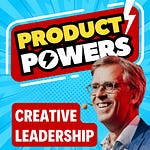In this week’s episode of the Superpowers School Podcast, I spoke with the brilliant Michelle Tillis Lederman—author of The Connector’s Advantage and The 11 Laws of Likability, and a top global expert on workplace relationships.
Michelle dropped insight after insight on how trust shows up in every interaction, especially when we’re facilitating conversations at work. Whether you're running a meeting, facilitating retros, or leading teams—trust is the most important ingredient to build deeper team connections.
Here’s what we explored.
The 4 Pillars of Trust (That Most People Get Wrong)
1. Authenticity
You can’t fake it. And people can smell it when you try.
Michelle reminded us that being authentic doesn’t mean oversharing. It means aligning your actions with your values. When you’re clear about who you are, people will gravitate toward you—or at least, trust that you’re consistent.
2. Vulnerability
“Vulnerability leads to credibility.”
That one line stuck with me.
We often think credibility comes from perfection. But real connection happens when we show our humanity. Michelle shared how even senior leaders build stronger teams when they’re willing to say, “I’ve been there too.”
3. Transparency
You don’t have to tell people everything. But you do have to tell them something.
Michelle warns that silence creates a vacuum—and vacuums get filled with gossip, anxiety, and made-up stories. Trust grows when we’re upfront about what we can share, what we can’t, and when we’ll follow up.
4. Consistency
Possibly the most underrated of all.
You can be authentic, vulnerable, and transparent—but if you show up one way on Monday and another on Wednesday, people stop believing you. As facilitators, our consistency is what creates psychological safety.
Mood Memory: The Real Impact of Facilitation
“They might not remember what you said. But they’ll remember how you made them feel.”
That’s mood memory—and according to Michelle, it’s more powerful than any agenda or set of slides.
This really hit home for me. Because so often, we focus on the content of our sessions and forget the experience we’re creating.
Do people feel seen? Heard? Respected?
Or do they walk away drained, dismissed, or disengaged?
Every micro-interaction matters. And that’s what separates good facilitators from great ones.
Designing for Neurodiversity (Without Overcomplicating It)
As a mother of neurodiverse children, Michelle brought a deeply personal lens to inclusive facilitation.
Different people process the world in different ways. That means as facilitators, we must flex—not abandon—our natural style.
Introverts need advance notice. ADHD participants might need silence and simplicity.
Michelle’s tip? “Listen with your eyes.” Pay attention to body language, tone, and energy shifts. And always design with at least two modes of engagement: visual, auditory, or kinesthetic.
If you can hit two, you’ll reach almost everyone.
Facilitators, Stop Surprising People
“If you want a contribution from someone, tell them in advance that you’ll be asking for it.”
Too often, we throw people into brainstorms or icebreakers without giving them time to process. Especially introverts.
Give people context. Give them time. Watch your participation rate soar.
Connection Is a Superpower
Michelle’s entire philosophy boils down to one idea:
Connection runs through everything.
Whether it’s building trust, designing inclusive experiences, or making small talk with your CEO at the Christmas party—connection is the thread that holds it all together.
And when we as facilitators get intentional about building that connection, the results are incredible:
More engagement
Better collaboration
Higher team morale
And yes, better business outcomes
Final Thought: Be the Facilitator People Trust
You don’t need to be the loudest voice in the room. You don’t need to have all the answers. But you do need to create an environment where people feel safe enough to bring their whole selves.
And that starts with trust.
Big thanks to Michelle Tillis Lederman for this powerful conversation.
If you want to learn more about her work, check out connectedleaderclub.com, or connect with her on LinkedIn.
Guest: Michelle Tillis Lederman
Michelle Tillis Lederman, is an expert on workplace communications and relationships. Named by Forbes as one of the Top 25 Networking Experts, and one of the Top 30 Communications Professionals in the World by Global Gurus. Michelle, a MG100 Coach, is the author of four books including the internationally known, The 11 Laws of Likability, and her latest The Connectors Advantage. Michelle is a connection creator and CEO of Executive Essentials, which provides customized communications and leadership programs for fortune 500, non-profit, university and government clients. A former finance executive and NYU Professor, Michelle is a regular in the media appearing on NBC, CBS, Fox, NPR, the Wall Street Journal, NY Times, CNBC, and others. Michelle is known for helping people work better together and advance their individual impact.










